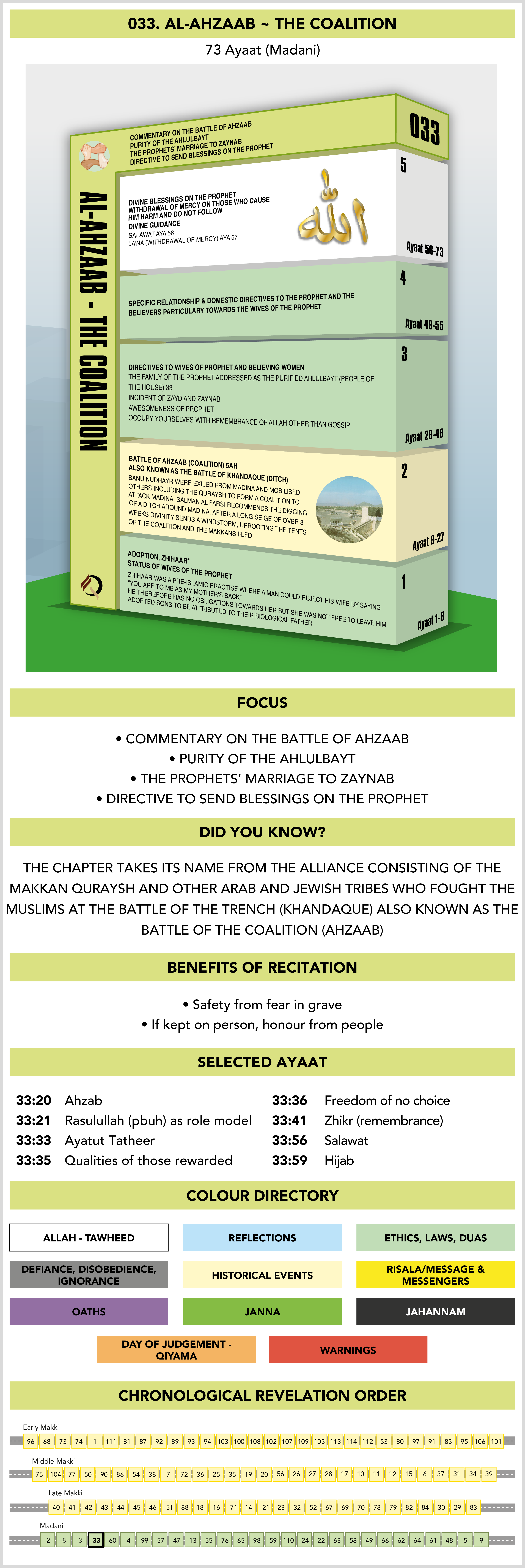The chapter begins with the negation of zhihaar where a man would reject his wife but not free her to marry anyone else, and the directive that adopted children were to be attributed to their biological fathers.
It then transitions to a detailed account of the battle of Ahzaab (coalition) or Khandaque (ditch) where the tribe of Banu Nudhayr who were exiled from Madina for breaking a treaty forged a coalition with others including the Quraysh to attack the Muslims. Salman al Farsi recommended the digging of a ditch (khandaque) around Madina to protect it. After a long siege of over 3 weeks Divinity sends a windstorm, uprooting the tents of the coalition and the Makkans fled.
The chapter continues to highlight the importance of the Prophet and the status of his wives. The believers are directed to obey him when he has decreed a matter.
The purity of the family of the Prophet is highlighted in verse 33 as the people of the house (Ahlulbayt). Love for the Prophet and his family is regarded as a foundational component of faith.
The incident of the Prophet marrying Zaynab (ex-wife of his adopted son) is mentioned and a directive to move away from gossip and occupy oneself with the remembrance of Allah.
In one of the most celebrated verses of the Qur’an, the chapter declares that Allah and His angels send blessings upon the Prophet and instructs the believers to do the same.


